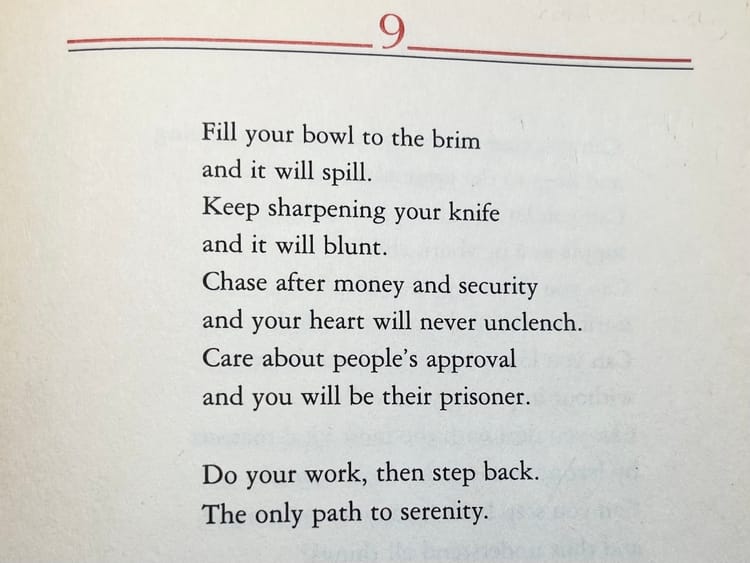The Path of Self-Mastery — No Matter How Far We go or What We Do, We Are Always with Ourselves

How things begin and how they converge. Contemplations on core concepts in the Tao Te Ching.
This episode of the Think Queerly Podcast explores the concepts expressed in today's article much more deeply.
“If one tries to control people with punishments, cleverness and treachery will surely arise; if one tries to define with names how people should behave, order and consideration will surely be lost; if one tries to encourage people through the use of praise, contention over who should be exalted will surely arise; if one tries to manage people with self-denial, contradictory behavior will surely ensue; and if one tries to act by using eclectic elements, weedy disorder will surely develop.”Wang Bi
This is a clever commentary from Wang Bi, written around 250 CE, and who is one of the earliest interpreters of the classic book, the Tao Te Ching.
Essentially, Wang Bi shares, in his “Outline Introduction to the Laozi,” one of the core concept of the Tao, which is ‘not forcing’ (wu wei) and how that arises and intersects with what is later termed yin and yang. These terms are often contrasted as the dark and the light; the mountain and the valley; the male and the female. We observe the world in dualities, and we cannot have an idea without a name for the idea. You cannot have the idea of up without it relating to the idea of down and so on.
Coming back to not forcing, water is the most commonly used metaphor in the Tao because it acts naturally and ‘by itself so’ — without forcing. Water flows to the most lowly places; into cracks and crevices. It is both gentle and destructive. Put your hands into water, and you cannot change its course. Swim against the current, and you swim against the natural flow of the water — against which you will encounter force. Thus, if you go with the flow (wu wei) your life will less of a struggle.
“Being good at making quick progress lies in not hurrying, and being good at reaching goals lies in not forcing one’s way.”Wang Bi
As humans, we are mostly water. This is an interesting thought if you pause to consider how this relates to the above metaphor. What happens when we try to control others? In many cases, it’s just like trying to control water. Any control we do exert will only be temporary — if not immediately met by force or resistance by the more self-aware individual.
Water is by itself so and with ‘no mind.’ Try to push water away with your hands and what happens? Your hands move through the water with little resistance, while the water itself is still as much in front of your hands as it is behind your hands — just as it was when you tried to push it away. Conversely, a person can be as rigid and unmoving as an old tree if you try to use force or control to get your own way over them. What happens instead if you seek to be like water in your relations with others?
What the Tao tells us, and what Wang Bi shares in his exposition of the nature of the Tao Te Ching in the opening quotation, is how things begin and how things converge. Every action has a corresponding re-action or a result. Several roads or different paths can each lead to the same destination. It is this congruence that is the natural balancing act of dualities.
Similarly, if you take only one approach in life, it will potentiate a particular, if not limited, result. Even the most divisive argument may appear irreconcilable, yet it exists only because both sides originated from the same place, and what both sides ultimately want is congruence.
Confusion arises in our lives when we seek to lay blame on others for the situation in which we find ourselves.
Laying blame is an act of surrender and holds us back from moving forward. We cannot rely on a single path in life as we may wind up at the wrong place, even though it was the right destination.
There are many divergent paths that originate from and return to where we will always find ourselves — and this is the path of self-mastery. No matter how far we go or what we do, we will always be with ourselves.
References
Laozi, and Bi Wang. The Classic of the Way and Virtue: a New Translation of the Tao-Te Ching of Laozi. Translated by Richard John Lynn, Columbia University Press, 1999.
Brené on Words, Actions, Dehumanization, and Accountability.
Photo by note thanun





Member discussion